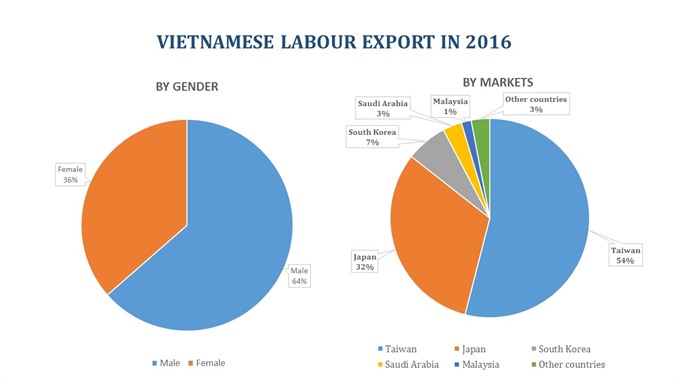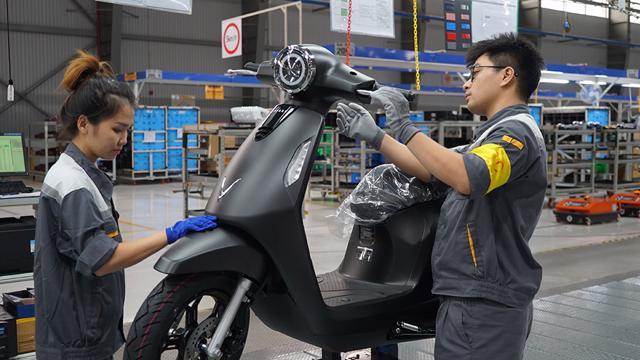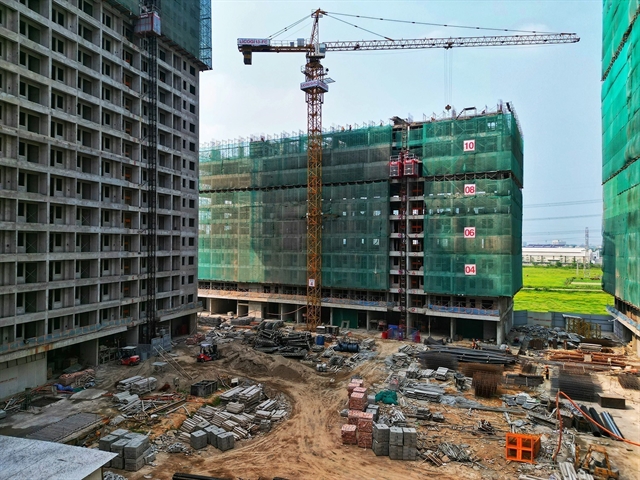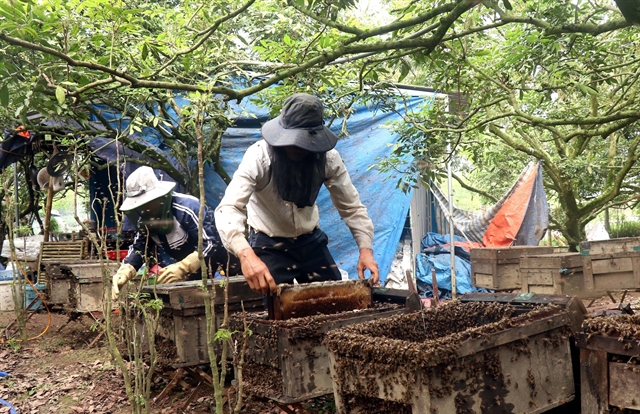

Phạm Viết Hương, Deputy Director of the Department of Overseas Labour, tells the Nông thôn ngày nay (Countryside Today) that there are plenty of jobs abroad for highly skilled workers this year.
 |
| Vietnamese labour exports in 2016.— VNS Infographic Trọng Kiên |
Phạm Viết Hương, Deputy Director of the Department of Overseas Labour, tells the Nông thôn ngày nay (Countryside Today) that there are plenty of jobs abroad for highly skilled workers this year.
Is this a good time for high-quality workers to find jobs abroad?
The quality of workers has been and continues to be of essential importance in labour export. Notably, the number of workers sent abroad have exceeded 100,000 for three consecutive years, and demand shows no signs of flagging.
The large number of workers sent to Japan remains a highlight in the labour export sector – 40,000 workers in 2016, 13,000 more than the previous year’s 27,000. Given the high expectations of the Japanese market, we can say that there has been a substantial shift in Vietnamese workers’ quality in recent years.
However, despite the stable increase in the number of workers sent abroad, we must pay close attention and prepare to meet the host countries’ increasing requirements, especially in countries providing good wages like Japan, South Korea, and Germany.
Given this trend, what should workers and enterprises do in preparation?
Aside from keeping themselves in good health, workers who are seeking overseas contracts need to arm themselves with sufficient command of destination country’s language and culture, and enhance their professional skills.
Enterprises in the labour export sector must invest more effort and capital in training activities so as to be ready to provide skilled workers to demanding markets.
In the coming time, the Department of Overseas Labour (DoLAB) will increase emphasis on training and improving the skills and capacities of workers sent overseas. In addition to a more rigorous oversight of labour-exporting enterprises in recruiting workers and providing training before being sent overseas, the department will co-operate with local governments and enterprises to implement support policies for social policy beneficiaries in finding jobs abroad.
The department’s priority now is to complete formulating a 2017-2020 (with vision towards 2025) plan for skilled labour export and submit it to the Prime Minister for approval.
It is the reality now that a number of labour-export enterprises are engaging in unfair competition, failing to exercise quality control and collecting outrageous fees from workers. Can you comment on this?
Currently, labour-export firms are organising recruitment processes on their own or in collaboration with local overseas labour authorities, job centres under provincial or municipal departments of labour, and other organisations like the Youth Union, Farmers’ Union and Women Union. Under this collaboration, suitable workers are referred, information provided on overseas employment opportunities, and counseling provided to interested workers.
The collaboration of private enterprises and local government has proved effective in better managing recruitment, helping workers skip the middlemen and cut their costs considerably.
However, the issues you have mentioned are very real and the Ministry has issued regulations that specify the fees that workers must pay (intermediary fee, service fee, deposit, etc.) as also particular provisions required in labour contracts. The labour-exporting enterprises are legally obliged to be transparent about the fees they collect.
We will co-operate with competent authorities to step up inspection of labour-exporting firms to timely detect violations, especially overcharging workers.
How will the rights and benefits of overseas workers be ensured in foreign countries?
First and foremost, enterprises must co-ordinate with authorities to protect the rights of the workers that they send overseas.
In Vietnamese embassies at popular destinations like South Korea, Japan, Taiwan, Saudi Arabia, and UAE, the labour management commission will be in charge of protecting the rights of Vietnamese workers.
In other countries with no labour management commission, our department will work closely with Vietnamese embassies to protect legal interests of workers. – VNS
Box:
In 2016, 126,296 workers were sent overseas against the target of 100,000.
In 2017, 105,000 workers are projected to be sent overseas, with the most popular destinations continuing to be Taiwan, Japan and South Korea.
In addition, the Department of Overseas Labour will implement labour treaties and agreements signed with Thailand, Laos, and Australia; and continue to send trained nurses and orderlies to Germany and Japan as per signed programmes.









